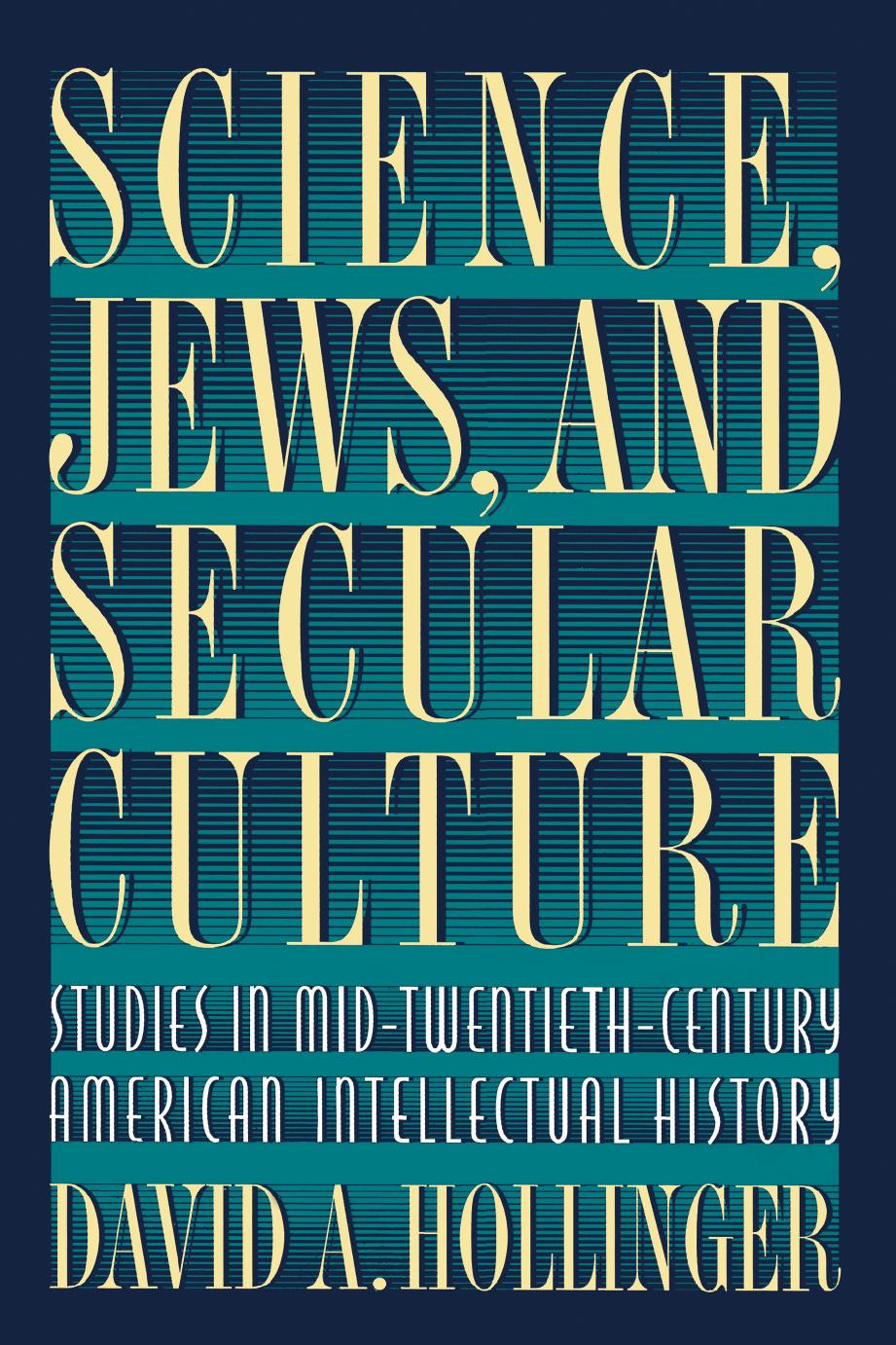Science, Jews, and Secular Culture by David A. Hollinger

Author:David A. Hollinger [Hollinger, David A.]
Language: eng
Format: epub, pdf
ISBN: 9781400847747
Publisher: PrincetonUP
Published: 2021-07-15T00:00:00+00:00
NOTES
1. Robert K. Merton, âA Note on Science and Democracy," Journal of Legal and Political Sociology 1 (1942): 116.
2. The chief exception to this was published in 1952, well before the discipline of sociology of science actually developed; Bernard Barber, Science and the Social Order (New York, 1952).
3. In his exhaustive survey of the sociological literature on the scientific ethos, Nico Stehr does not even find cause to mention the relation of science to democracy as an issue under discussion. Stehr distinguishes between two active traditions of research and analysis, one concerned with âcognitiveâ norms and the other with âsocialâ norms; both study life within communities of scientists. See Nico Stehr, âThe Ethos of Science Revisited,â Sociological Inquiry 48 (1978): 172-196, esp. 178.
4. Paul Feyerabend, Science in a Free Society (London, 1978), 76.
5. Robert K. Merton, Social Theory and Social Structure: Toward the Codification of Theory and Research (Glencoe, Ill., 1949), 307-316 (1957 edition, 550-561; 1968 edition, 604-615); Robert K. Merton, The Sociology of Science: Theoretical and Empirical Investigations, ed. Norman W. Storer (Chicago, 1973), 267-278; Robert K. Merton, âThe Sociology of Science: An Episodic Memoir,â in The Sociology of Science in Europe, ed. Robert K. Merton and Jerry Gaston (Carbondale, Ill., 1977), 48-50. It is perfectly reasonable, of course, that sociologistsâincluding Merton, his followers, and his criticsâshould focus on what this text has done, and can or cannot still do, for the sociology of science; rarely does the sociological literature address as a historian would the historical setting and significance of this text. One very brief but sensible effort to do this, however, has been made in passing by M. D. King, while performing one of the most compelling assessments yet made of the limitations of Mertonâs work; see M. D. King, âReason, Tradition, and the Progressiveness of Science,â History and Theory 10 (1971): 15-16. Another interesting paper appeared too late for me to use: Yaron Ezrahi, âScience and the Problem of Authority in Democracy,â in Science and Social Structure: A Festschrift for Robert K. Merton, ed. Thomas Gieryn (New York, 1980), 43-60; see esp. 46.
6. Storer, in Merton and Gaston, Sociology of Science, 226.
7. Robert K. Merton, âScience, Technology and Society in Seventeenth-Century England,â Osiris 4 (1938), pt. 2, 360-632; I have used the edition brought out as a book (New York, 1970). See Thomas S. Kuhnâs account of this workâs significance in Kuhnâs âThe History of Science,â in International Encyclopedia of the Social Sciences, ed. David L. Sills, 14 (1968): 79-80.
8. Robert K. Merton, âScience and the Social Order,â Philosophy of Science 5 (1938): 321-322, 327.
9. Merton, âNote,â 126.
10. Ibid., 115-121.
11. Ibid., 121-123.
12. Ibid., 125-126.
13. Ibid., 126.
14. William Galt, âScience and Democracy,â Journal of Psychology 14 (1942): 155-160.
15. E.g., Harold D. Lasswell, âScience and Democracy: The Search for Perfection,â Vital Speeches 7 (November 15, 1940): 85; the New York Times editorial, âScience and Democracy,â quoted in Science 86 (October 22, 1937): 375-376; Edgar J. Witzemann, âThe So-Called Scientific Method and Its Role as a Process in Democracy,â
Download
Science, Jews, and Secular Culture by David A. Hollinger.pdf
This site does not store any files on its server. We only index and link to content provided by other sites. Please contact the content providers to delete copyright contents if any and email us, we'll remove relevant links or contents immediately.
The Lost Art of Listening by Michael P. Nichols(7487)
Why I Am Not A Calvinist by Dr. Peter S. Ruckman(4147)
The Rosicrucians by Christopher McIntosh(3509)
Wicca: a guide for the solitary practitioner by Scott Cunningham(3166)
Signature in the Cell: DNA and the Evidence for Intelligent Design by Stephen C. Meyer(3125)
Real Sex by Lauren F. Winner(3012)
The Holy Spirit by Billy Graham(2942)
To Light a Sacred Flame by Silver RavenWolf(2813)
The End of Faith by Sam Harris(2733)
The Gnostic Gospels by Pagels Elaine(2527)
Waking Up by Sam Harris(2454)
Nine Parts of Desire by Geraldine Brooks(2355)
Jesus by Paul Johnson(2351)
Devil, The by Almond Philip C(2324)
The God delusion by Richard Dawkins(2301)
Heavens on Earth by Michael Shermer(2278)
Kundalini by Gopi Krishna(2180)
Chosen by God by R. C. Sproul(2159)
The Nature of Consciousness by Rupert Spira(2095)
